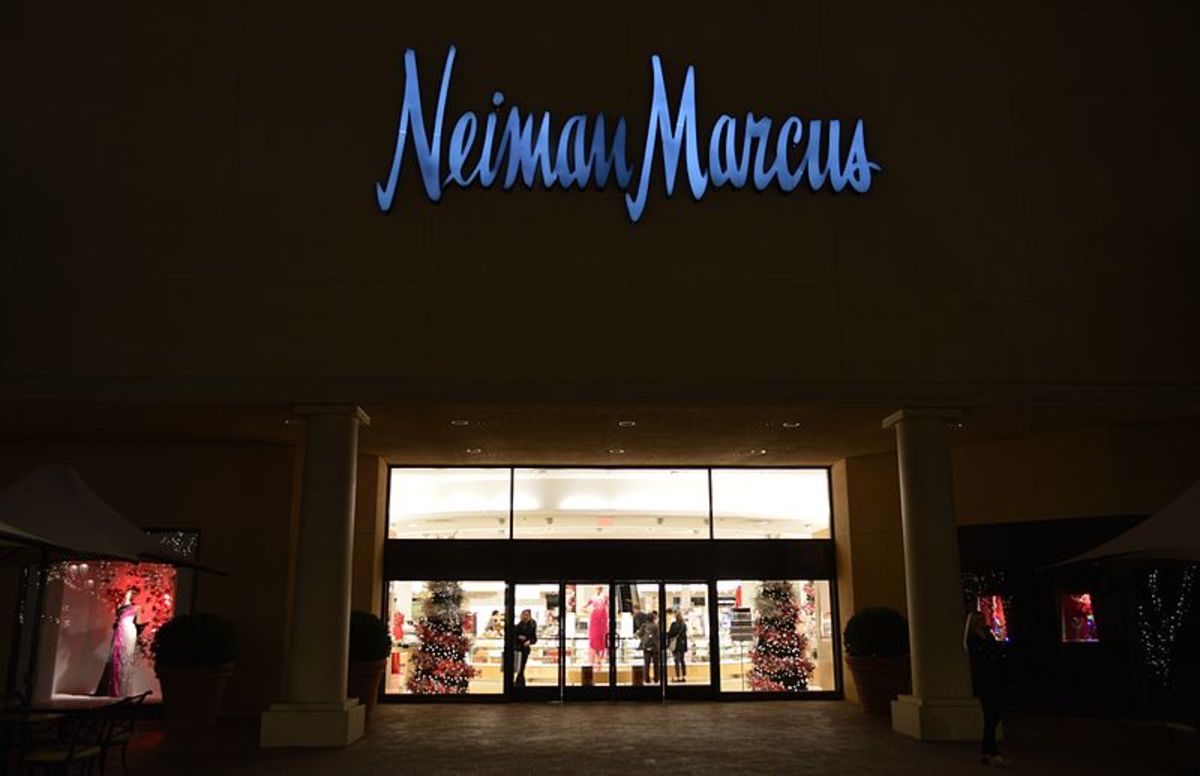September brought a spate of three major acquisitions by private equity firms of companies with technology related to the management of smaller law firms. Was this coincidence or was the pandemic a factor?
The trend started Sept. 8, when news broke that the practice management platform MyCase has been sold by its owner, AppFolio, to the private equity firm Apax Partners for a whopping $193 million in cash.
Founded in 2010, MyCase had been acquired in 2012 by AppFolio, a company then new to the legal industry whose primary product was and remains a cloud-based property management platform for residential and commercial property managers. In 2015, AppFolio completed an initial public offering, raising some $74 million — one of the few-ever IPOs related to the legal industry.
The other two acquisitions both came to light last week (although both had privately closed at least several weeks earlier).
On Sept. 22, I reported on my LawSites blog that ASG LegalTech, the company that owns cloud practice management platforms PracticePanther, Bill4Time, and MerusCase, had acquired Headnote, the online payments platform that provides e-payments and accounts-receivable management for law firms.
ASG LegalTech is a relatively new company. Its parent, Alpine SG (ASG), is a portfolio company of the San Francisco private equity firm Alpine Investors. After ASG acquired Bill4Time in 2017 and PracticePanther in March 2018, it merged the two companies in February 2019 to create the unified legal technology business, ASG LegalTech. A month later, it acquired another practice management company, Merus Inc., developer of MerusCase.
The company it acquired, Headnote, was founded in 2016 by Sarah Schaaf, a lawyer who had formerly worked at Google, together with Thornton Schaaf, who was head of product at Headnote, and Matt Crampton, who was Headnote’s chief technology officer.
They created Headnote at a time when the payments business in legal was largely dominated by one company, LawPay, founded in 2005. They sought to distinguish Headnote through a mix of features that made it easy to use and ensured compliance with bar and IOLTA requirements, while charging the lowest fees in the legal industry.
The final acquisition, revealed Sept. 24, was of the practice management company Rocket Matter, which was acquired by the private equity firm Lightyear Capital LLC, which will make it part of a new company, ProfitSolv, that also includes two other recently acquired companies, TimeSolv, a provider of cloud-based legal billing and timekeeping software, and ImagineTime, a practice management and payments company serving accounting and other professional services firms.
Along with Clio, Rocket Matter was the first of the new breed of cloud-based practice management platforms, launching its commercial product on Jan. 6, 2009, just months after Clio’s launch on Oct. 1, 2008. As I wrote in 2018, the two companies “ignited a revolution in law practice management by bringing to the cloud what had always been a desktop technology.”
Is The Pandemic A Factor?
All of which begs the question: Were these three acquisitions, all within two weeks of each other, sheer coincidence, or was the pandemic a factor that led to this alignment of investments? I believe it was very much a factor, and that three pandemic-related reasons drove these acquisitions.
The first reason is also the most obvious. Not only has the pandemic accelerated the adoption of cloud technologies among legal professionals, it has also made it essential. I wrote here back in April:
In a matter of a month, any lawyers who still harbored fears of technology have of necessity come to see it as a lifeline to the survival of their practices and their continuing ability to serve their clients. Going forward, that will fundamentally reshape the legal profession’s use and adoption of technology.
While this is true of technology broadly, it is most true of cloud technology, as we have all adapted to working from home and where no clear end is in sight. Cloud companies tell me that their subscriptions have been soaring during the pandemic, and companies that have offered both on-premises and cloud software tell me they can barely keep up with converting their customers to the cloud.
In short, cloud practice management is a very good business to be in these days, and as so many lawyers adopt or convert to the cloud, there will be no going back. The pandemic has been a pivotal period, changing what had been gradual adoption of the cloud to a mass movement.
For private equity firms, this has created an appealing investment opportunity. Cloud legal tech is strong right now, and there is significant potential to grow these businesses much more over the next few years.
The E-Payments Factor
A second pandemic-related factor that has driven these investments is the need for electronic payments.
Before the pandemic, many law firms, especially smaller firms, clung to the old-fashioned method of getting paid, in which they sent out paper invoices and waited for their clients’ paper checks to arrive back in the mail.
But paper payments do not work in a pandemic. Clients do not want to deal with paper invoices and writing and mailing checks. Firms likewise do not want to deal with printing and mailing invoices, and may not even have easy access to mail delivery.
In all three of the acquisitions described above, e-payments is a significant part of their technology — and, no doubt, of their plans going forward.
The ASG LegalTech acquisition of Headnote is the most direct example of this. By acquiring Headnote, ASG LegalTech gets a modern and proven payments platform. On my LawNext podcast, ASG LegalTech’s CEO Soumya Nettimi told me that one of the aspects of this deal that she is most excited about is that they will use Headnote’s technology to build something their customers have been asking for — a fully native payment solution within each of their practice management platforms.
“So what this means is customers will have a seamless experience already built into their current workflows, so they never have to leave their practice management system in order to manage their payments,” Nettimi said.
They have already done this for PracticePanther, building a fully integrated, all-in-one payment system within the platform called PantherPayments. They will also keep Headnote as a standalone product.
MyCase had long ago offered integrated electronic payments options, starting with e-checks in 2015 and adding credit card payments in 2016.
Meanwhile, Rocket Matter earlier this year acquired LexCharge LLC, a payment processing company that specialized in handling payments for legal professionals. While it already had an integrated payments option, the LexCharge technology allowed it to create a more truly consolidated streamlined payments experience within its platform.
So not only has the pandemic made cloud technology in general more essential, it has made the specific category of payments technology more essential. As ASG LegalTech’s Nettimi said to me, in this year of the pandemic, “getting paid is synonymous with staying in business for many of our firms.”
On top of that, payments technology can be a very good business for an investor. For every payment processed, the company gets a percentage. While the amount in any single transaction is relatively small, all those legal bills getting paid by all those clients of all those firms add up.
Given this, I think it is no coincidence that all three of these acquisitions involved companies with payments technology.
“Trillion-Dollar Piggy Bank”
The third factor that has contributed to this alignment of investments, I suspect, is that private equity is sitting on what The Wall Street Journal described as a “trillion-dollar piggy bank” — a $1.45 trillion build-up of so-called dry powder, which is money that investors have committed to private equity funds but which has not yet been spent.
With all this cash at hand, private equity firms may be looking for opportunities in industries they previously paid little attention to. The pandemic presents an opportunity for new growth and even transformation among legal technology companies, and nowhere is that more so than in cloud-based legal technology.
The Impact On Customers
The combination of these factors — all exacerbated by the pandemic — have driven private equity firms to invest in cloud practice management technology. But the question I have received the most in the past two weeks is not why this has occurred, but whether this private equity ownership will be good for the customers of these companies.
With regard to both the MyCase and Rocket Matter acquisitions, the new owners have largely been mum, so we know little about their plans. However, Rocket Matter founder Larry Port described the investment as “superhero potion.”
“Rocket Matter still has the same team, the same quirky and caring company personality, and are still committed to our core purpose: ‘to make the lives of attorneys a whole lot better,’” he wrote. “And with our new superpowers, we’ll be able to do a whole lot more of that.”
The principals of ASG LegalTech have been far more transparent about their plans, and they seem fully committed to making their suite of products even better through continuing development, stronger customer service, and even more product launches or acquisitions down the road. Don’t take my word for it – I encourage you to listen to my interview with Nettimi and Schaaf and judge for yourself.
The fact of the matter is that the legal industry has changed dramatically since Clio and Rocket Matter rolled out their first cloud products a dozen years ago, and the pandemic has accelerated that change even more dramatically. For these companies to continue to develop and scale in keeping with these changes, they need money. I am optimistic that all of these acquisitions will prove to be good news for their customers.
Robert Ambrogi is a Massachusetts lawyer and journalist who has been covering legal technology and the web for more than 20 years, primarily through his blog LawSites.com. Former editor-in-chief of several legal newspapers, he is a fellow of the College of Law Practice Management and an inaugural Fastcase 50 honoree. He can be reached by email at ambrogi@gmail.com, and you can follow him on Twitter (@BobAmbrogi).
is a Massachusetts lawyer and journalist who has been covering legal technology and the web for more than 20 years, primarily through his blog LawSites.com. Former editor-in-chief of several legal newspapers, he is a fellow of the College of Law Practice Management and an inaugural Fastcase 50 honoree. He can be reached by email at ambrogi@gmail.com, and you can follow him on Twitter (@BobAmbrogi).




 Jordan Rothman is a partner of
Jordan Rothman is a partner of 




 Olga V. Mack is the CEO of
Olga V. Mack is the CEO of 


 Kathryn Rubino is a Senior Editor at Above the Law, and host of
Kathryn Rubino is a Senior Editor at Above the Law, and host of 


